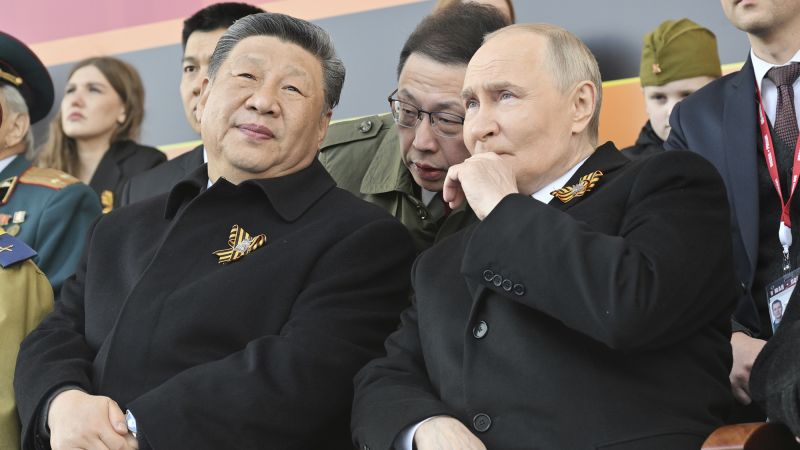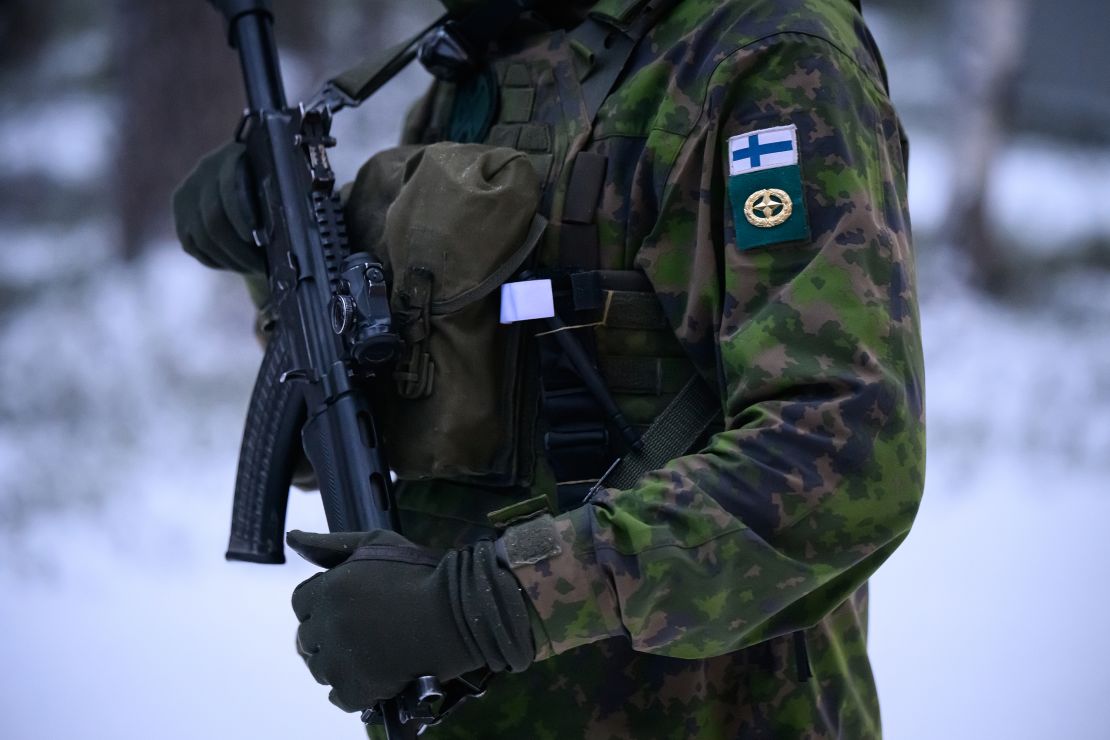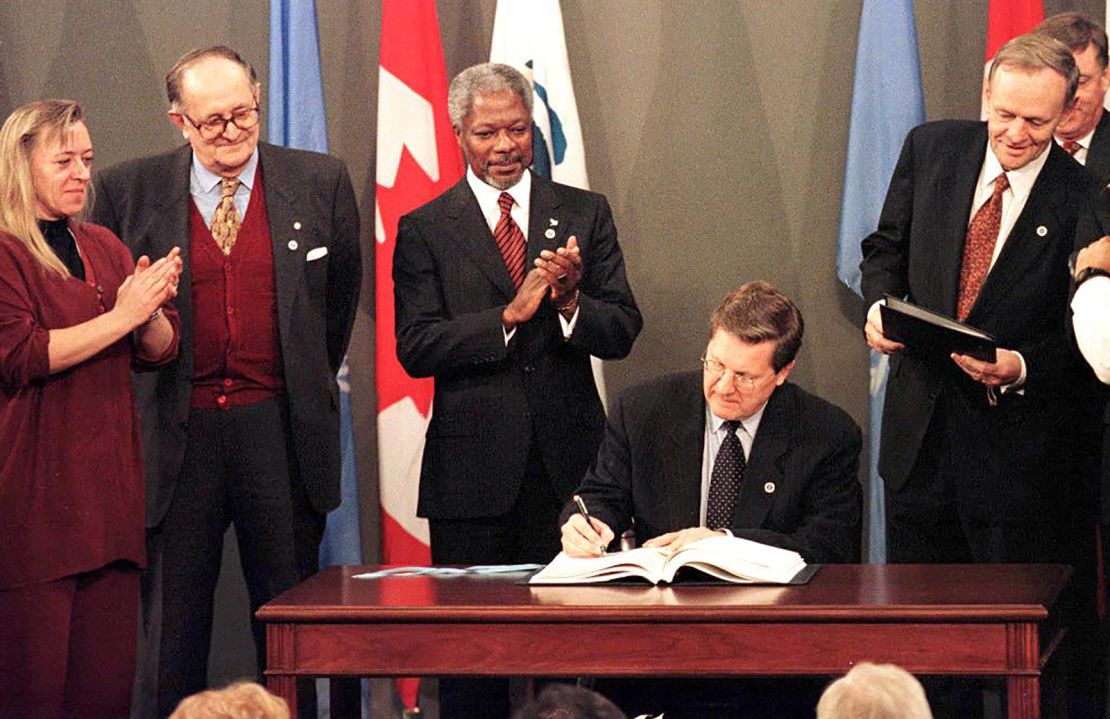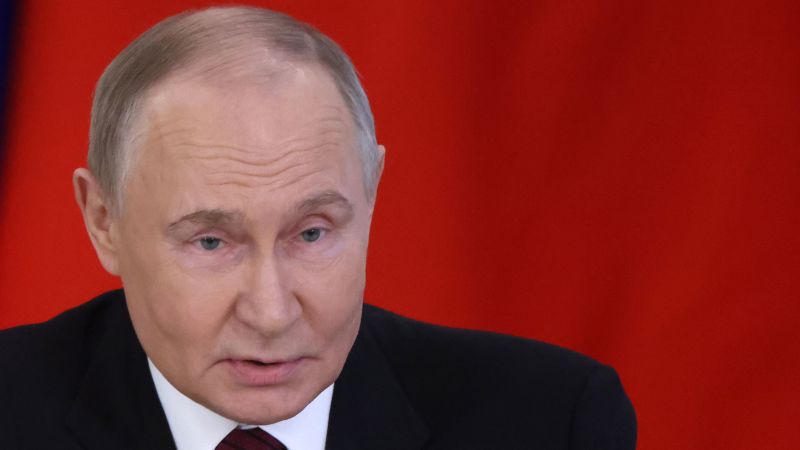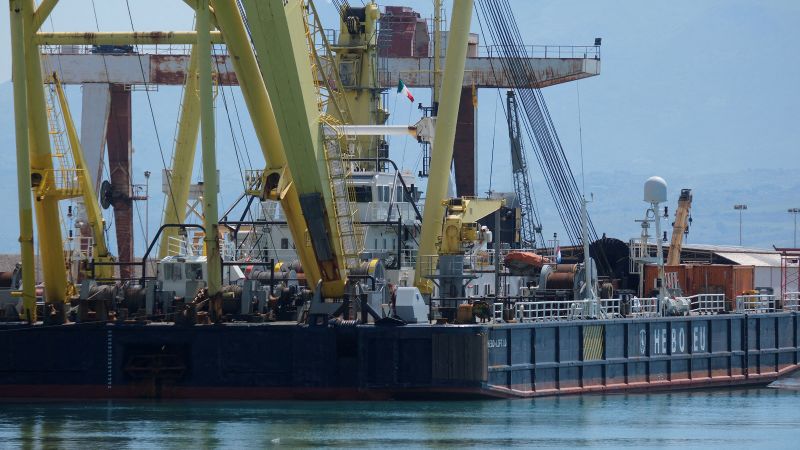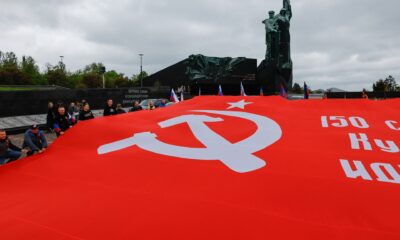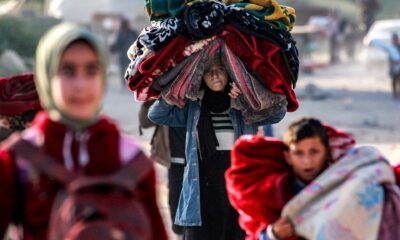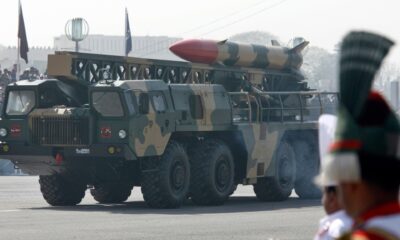CNN
—
Russian President Vladimir Putin has taken center stage at Russia’s Victory Day parade on Friday, surrounding himself by friendly world leaders in a highly choreographed show designed to show the Western world that Russia is far from isolated.
Watching as thousands of troops marched across Moscow’s Red Square, Putin stood next to his guest of honor, the Chinese leader Xi Jinping.
The annual May 9 commemoration of the Soviet Union’s victory over Nazi Germany in World War II is one of the most important days in Putin’s calendar, and this year marks its 80th anniversary.
Traditionally, the day has been dedicated to the estimated 25 million to 27 million Soviet soldiers and civilians who died during the conflict. But since Russia launched its full-scale invasion of Ukraine in 2022, Victory Day has become more of a propaganda exercise, with Putin framing the war against Russia’s much smaller neighbor as a continuation of what Russians call the Great Patriotic War.
And while celebrations were muted in the past three years, Russia has not held back this time.
Putin and Xi were joined by scores of other world leaders, most of whom had the black and orange ribbon of Saint George pinned to their lapels. Many of them have also sent troops to march in the parade, alongside Russian servicemen.
The Russian military symbol dates back to imperial times, but it has become hugely controversial in recent years, having been coopted as a sign of support for Moscow’s aggression against Ukraine. It has been banned in a number of countries.
Brazil’s President Luiz Inácio Lula da Silva, the Egyptian President Abdel Fattah el-Sisi, Serbia’s President Aleksandar Vucic, Venezuela’s President Nicolas Maduro and Mahmoud Abbas, the President of the Palestinian Authority were all in attendance, marking a significant upgrade to last year’s guestlist which was limited to a handful of delegations from post-Soviet states, Cuba and a few other countries.
Robert Fico, the Prime Minister of Slovakia, a European Union member state, was also in Moscow on Friday. His appearance side by side with Putin was particularly significant given the EU’s tough stance against Russia over its aggression against Ukraine.
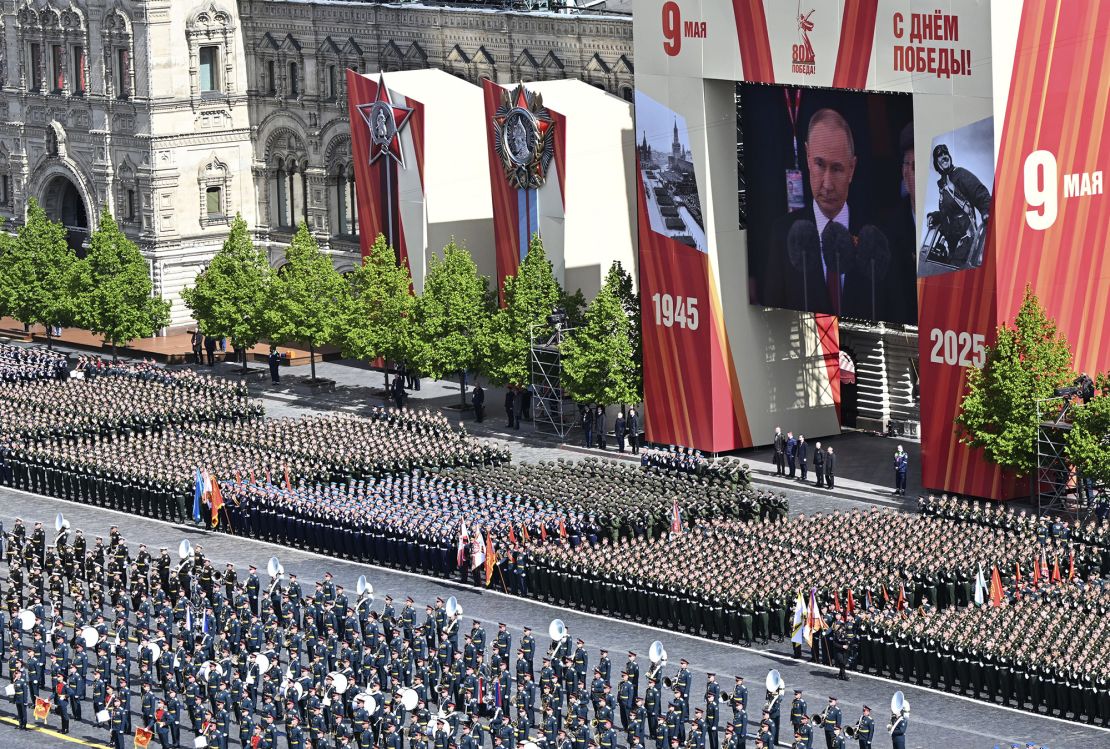
Last month, Putin declared a three-day unilateral ceasefire around the anniversary – an announcement that was promptly rejected by Ukraine.
“The Kremlin’s proposal for a three-day truce is not about peace, but about ensuring the safe conduct of the parade in Moscow. This is political manipulation,” Andriy Yermak, the head of the Ukrainian Presidential Office, said in a statement on Thursday.
Kyiv said that if Russia wanted a truce, it should sign up to the US proposal for a 30-day ceasefire that Ukraine has already agreed to. Russia has repeatedly refused this offer, despite multiple high-profile meetings with top US officials.
Kyiv said on Thursday that Russia had breached the ceasefire hundreds of times since it came into effect. Several civilians were killed and injured in guided bomb attacks against Ukrainian cities, Kyiv said.
Kyiv is openly indifferent to the smooth-running of Putin’s parade, saying that it “cannot be responsible for what happens on the territory of the Russian Federation” because of the war. Ukrainian President Volodymyr Zelensky said his country would not be “playing games to create a pleasant atmosphere to allow for Putin’s exit from isolation on May 9.”
In the run-up to the parade, Ukraine launched several drone attacks against the Russian capital, with authorities forced to shut down all four Moscow airports on Wednesday.
Estonia, Latvia and Lithuania also threw in some logistical complications for international parade-goers, shutting their airspaces to diplomatic planes traveling to Moscow. Several pro-Kremlin leaders were forced to reroute their journeys to Moscow to circumvent the Baltic states.
“In Latvian society, there is a clear and principled understanding that Russian propaganda and glorification of war crimes cannot be supported or encouraged … given this context, Latvia cannot grant diplomatic overflight permits for flights facilitating participation in the 9 May event,” the Latvian Foreign Ministry said in a statement on Thursday.
Slovak Prime Minister Robert Fico, one of the leaders affected by the closures, criticized the move, saying on Wednesday that it was “extremely disruptive.”
Serbian President Aleksandar Vucic was also forced to re-route after the Baltic states said he wouldn’t be allowed to enter their airspace. According to Serbian media, he ended up flying via Baku in Azerbaijan.

